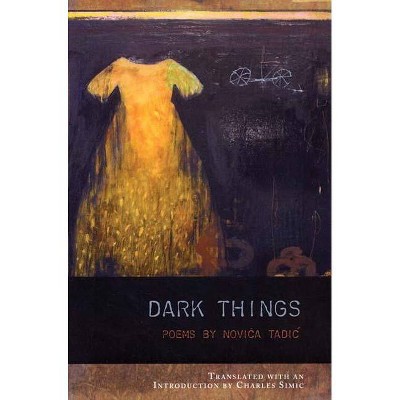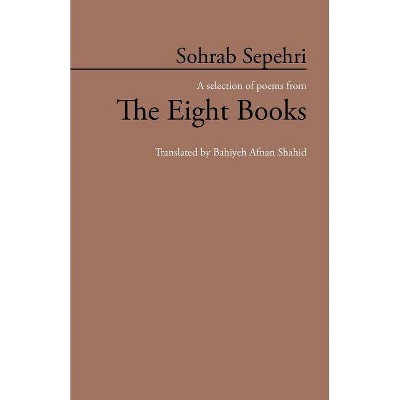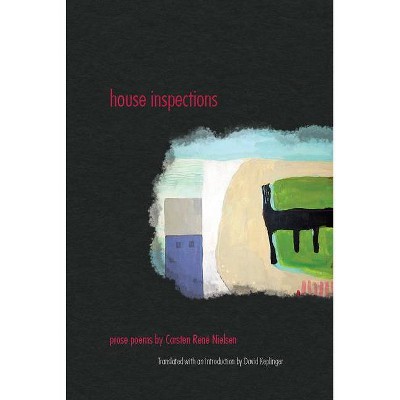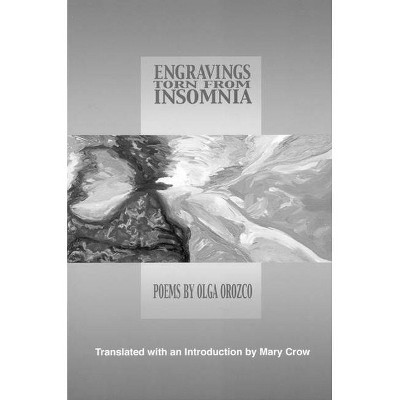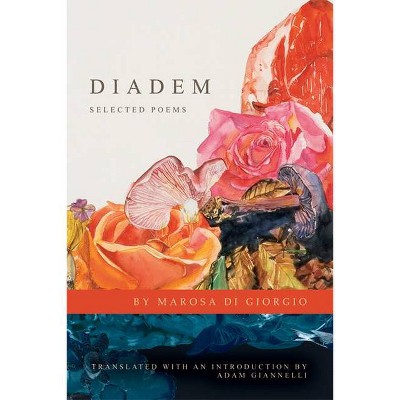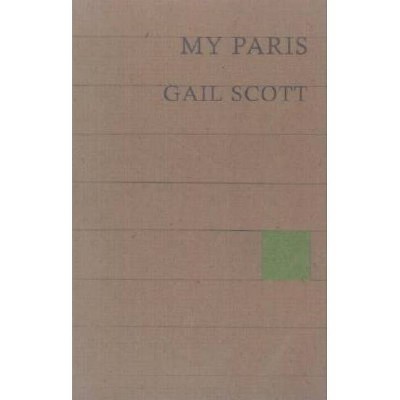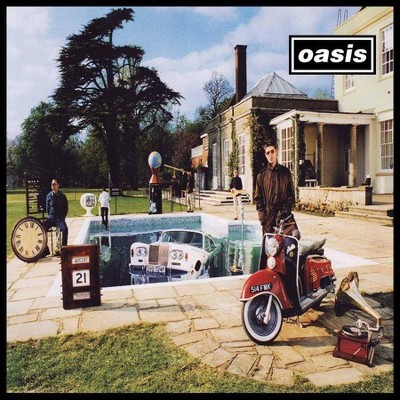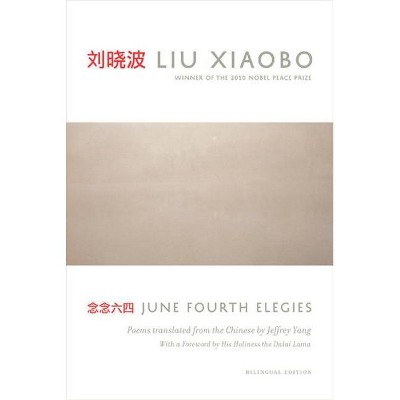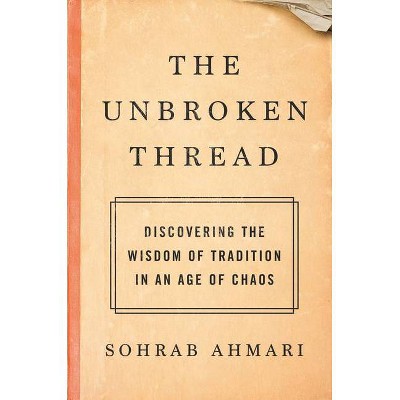The Oasis of Now - (Lannan Translations Selection) by Sohrab Sepehri (Paperback)
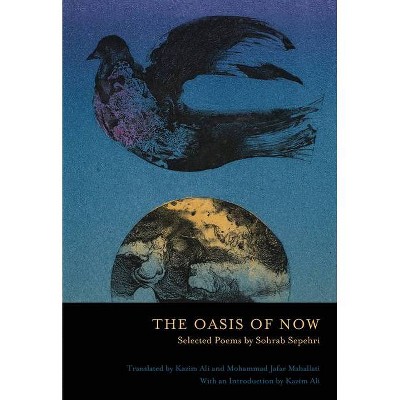
Similar Products
Products of same category from the store
AllProduct info
<p/><br></br><p><b> About the Book </b></p></br></br>First U.S. publication of one of Iran's most important contemporary poets. This edition includes an essay/introduction by Kazim Ali.<p/><br></br><p><b> Book Synopsis </b></p></br></br><p><em>The Oasis of Now</em> is the first U.S. book publication of the works of Sohrab Sepehri (1928-1980), one of the major Iranian poets of the twentieth century. Well-versed in Buddhism, mysticism, and Western traditions, Sepehri mingled Western concepts with Eastern ones, creating a poetry unsurpassed in the history of Persian literature. In Iran, his Persian verses are often recited in public gatherings and lines from them were used as slogans by the protesters in 2009. This first full-length American volume collects poems from three of Sepehri's most important books, including the highly acclaimed <em>Water's Footfall</em>.</p><p><em>I want to know: <br /> Why is a horse noble and the dove beloved<br /> but no one keeps a pet vulture in a gilded cage.<br /> Why is the humble clover trodden upon rather than the red tulip.<br /> I want to see anew and wash the words of the world<br /> in wind and rain.</em></p><p><strong>Sohrab Sepehri</strong> wrote the poems collected in <em>The Oasis of Now</em> after traveling through Japan, China, and India, where he was exposed to the arts of those countries as well as the spiritual disciplines of Buddhism, Taoism, and Hinduism. This book is crucial for anyone interested in Iranian arts and culture.</p><p><strong>Kazim Ali</strong> is author of ten books of poetry, fiction, essays, and translations. He is an associate professor at Oberlin College and founding editor of Nightboat Books.</p><p><strong>Mohammad Jafar Mahallati</strong> is Presidential Scholar in the religion department of Oberlin College. He served as Iran's ambassador to the United Nations from 1987 to 1989 and was instrumental in brokering a peace agreement between Iran and Iraq during that time.</p><p> </p><p/><br></br><p><b> Review Quotes </b></p></br></br><br><b>Finalist and Runner-Up for 2014 Best Translated Book Award</b> <p/>"Ali is clearly struck by the relevance of Sepehri's poetry to the current political climate in Iran, in particular the ways in which younger Iranians creatively reuse Sepehri's personal lyrics in political contexts." - <i>The American Poetry Review</i> <p/>"As a whole, Sohrab Sepehri's The Oasis of Now is a volume celebrating the joys and sorrows of a poet as he journeys through life. Sepehri's poems are wise and elegant and mysterious as they teach us that solitude is often the mother of breathtaking beauty." -<i>The Journal</i> <p/>I felt the need to slow down after reading these pieces, so much so that I just wanted to walk around my apartment, look at things, without expectations, certain that if I waited long enough something beautiful would emerge out of its ordinariness. And what if we looked at the objects or emotions we find mundane, or cheesy, or over sentimental, or pastiche; what could we learn from them? What would we see? That's the question Sepehri's poetry taught me. -<i>Three Percent</i> <p/>Pulsing with life, Sepehri's poetry mourns and rejoices, celebrating the complex nature of the world and humanity's place within it. <i>World Literature Today</i><br><br><p/><br></br><p><b> About the Author </b></p></br></br>Sohrab Sepehri: Sohrab Sepehri was born in 1928 on a journey between Kashan, his family's home, and Qum. An acclaimed painter, Sepehri published numerous volumes during his lifetime and traveled widely throughout the world, including Europe, South Asia, the Middle East, China and Japan, the United States and South America. Many of his poems were influenced by his relationship with nature, and his studies of Eastern philosophy and visual arts and were often composed in a cadence similar to spoken language, considered a radical innovation at the time. Sepehri died in 1980 and in Iran is considered to be one of the most important poets of the twentieth century. <p/>Kazim Ali: Kazim Ali was born in the UK to Muslim parents of South Asian and Middle Eastern descent. His books include four volumes of poetry, The Far Mosque, The Fortieth Day, the mixed genre Bright Felon: Autobiography and Cities and Sky Ward. He has also published two novels Quinn's Passage and The Disappearance of Seth, two collections of essays, Orange Alert: Essays on Poetry, Art and the Architecture of Silence in the University of Michigan Press Poets on Poetry series and Fasting for Ramadan: Notes from a Spiritual Practice. He is the translator of a volume of poetry by Sohrab Sepehri and the novel L'Amour by Marguerite Duras. Recently he edited the essay collection Jean Valentine: This-World Company. In addition to being associate professor of Creative Writing and Comparative Literature at Oberlin College and founding editor of Nightboat Books, he teaches in the Stonecoast MFA program and is a certified Jivamukti Yoga instructor. <p/>Mohammad Jafar Mahallati: Jafar Mahallati is Presidential Scholar in the Religion Department of Oberlin College. He served as Iran's ambassador to the United Nations from 1987-1989 and was instrumental in brokering a peace agreement between Iran and Iraq. His scholarship focuses on cross-cultural concepts of friendship.
Price History
Price Archive shows prices from various stores, lets you see history and find the cheapest. There is no actual sale on the website. For all support, inquiry and suggestion messagescommunication@pricearchive.us
